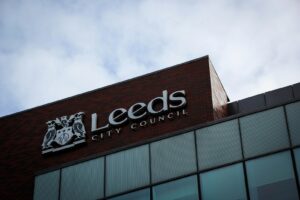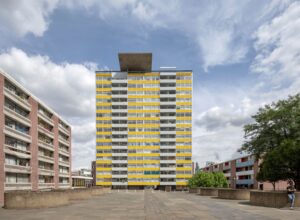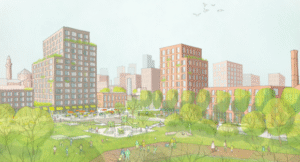As asset transfers between councils and local organisations grow, Locality and the Football Association have produced a guide to help any local football clubs interested in taking on local assets.
Stephen Rolph, development manager at Locality, who helped to produce the guide, says that taking on the long term tenure of their site can help local clubs further develop their football plans and expand their work: ‘Many clubs have ambitious programmes for their club and using local assets can help them do this. ’
Larkspur Rovers is one of a growing number of local clubs who have gone down the asset transfer route; the club was helped by Ealing Council to take on a local facility (pictured) that allowed them to expand their programme of local sports.
Working in partnership, asset transfers can help councils to transform land and buildings that otherwise are unproductive or have become a drain on resources, whilst allowing local sporting clubs to boost their activities for young people, for example, as well as add to their income base.
The idea of the toolkit was to support this trend and give football clubs the information they need. ‘The guide provides the initial information and inspiration and a path showing what to do next,’ says Rolph.
Here’s an extract from the guide, outlining questions clubs need to ask themselves and critical steps when considering a transfer:
- Is there a clear football need? What are the needs of your football club? How will your club meet the needs of the transferring body?
- What options have been considered? Is an asset transfer the most effective way of realising the sites potential whilst protecting and safeguarding football and the community interest on the site?
- Seek independent legal advice. Early professional advice will help protect the club’s interests
- Agree outline objectives between all parties. Set out in broad terms the expectations of each organisation
- Set realistic time scales. Ensure that the football club are afforded the time to work up realistic and deliverable proposals
- Develop a business plan/feasibility plan. You need to demonstrate a sustainable solution for the club and the site
- Openly consult stakeholders. Jointly assess the strategic need for the facility and proposed use with relevant stakeholders. It may be appropriate to seek support from other clubs or the relevant league.
- Manage the risk. Protect the football club, by not executing the legal terms until a sustainable solution is agreed and achieved in light of independent legal and financial advice
- Protect the asset. The site should remain open and current levels of operation/subsidy maintained while negotiating an alternative solution
- Adopt a partnership approach. Can the local authority support you by providing access to specialist support (project managers, grant funding officers), small grants for feasibility and professional fees, high quality historical site information, maintenance contributions, low rent, procure any capital works and capital investment as a lever for external investment?
The guide is aimed primarily, not at the top of the pyramid, but for clubs in the lower leagues, but the principles in the guide make sense to any club.
Taking on assets also links with other agendas such as raising finance through ‘community shares’, whereby individuals take a financial stake in an enterprise with a social purpose. Portsmouth FC is an example of this; it ran a community shares programme to help fans take back control of the club.
‘Community shares is another important and growing development. It responds to peoples’ desire to support what is most important to them. It also supports a democratic and accountable form of enterprise’ says Rolph.
Those clubs that go through an asset transfer project usually end up revisiting what their purpose and aims are and how they could do more in their local communities, and often move on to thinking more about how they can open up their ownership.
‘Clubs have to think wider than just football. Realising the club’s ambitions will only work if you have the full support of the wider community.’
















Leave a Reply